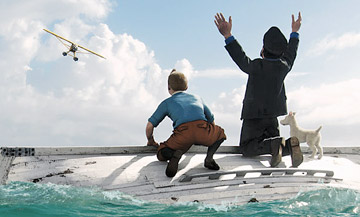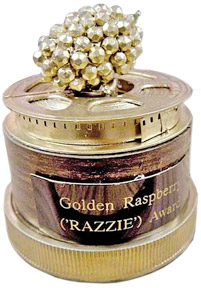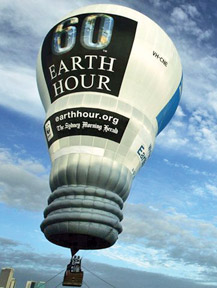Japan’s struggle with four elements
 Nalaka Gunawardene and Vindana Ariyawansa Nalaka Gunawardene and Vindana Ariyawansa
Earth, water, fire and air. These are the four basic elements of
matter as seen in ancient Greek, Hindu and other traditions. In recent
days Japan has been experiencing multiple disasters involving all these
elements.
It started with a 9.0 magnitude megathrust earthquake off the coast
of Japan that occurred at 2.46 pm Japan time on March 11, 2011. Its
epicentre was 130 kilometres off the east coast of the Oshika Peninsula
of Tohoku, near Sendai. The earthquake triggered highly destructive
tsunami waves of up to 10 metres (33 ft) that struck nearby coastal
areas minutes after the quake, and in some cases travelled up to 10km (6
miles) inland.

The earthquake and tsunami waves killed over 5,000 people, caused
massive property damage and started fires in some affected locations.
Most worrying was the damage caused to the Fukushima II nuclear power
plant where reactors damaged by the quake and tsunami led to an
accidental leak of radioactivity.
Japan has a long history of living and coping with disasters, but the
magnitude and confluence of multiple disasters has plunged the country
into the worst crisis since the Second World War. Today, we open with a
few questions related to this news.
1. Tsunami is once again in the news. It refers to a series of
travelling waves in water (usually in the ocean) produced by the
displacement of the sea floor associated with submarine earthquakes,
volcanic eruptions or landslides. Tsunamis are sometimes referred to as
tidal waves, but this term is no longer favoured by the scientific
community, because tsunamis have nothing to do with tides. What is the
literal meaning of the Japanese word tsunami?
2. Tsunamis have been reported since ancient times. They have been
documented extensively, especially in Japan and in the Mediterranean sea
countries. The oldest recorded tsunami occurred off the coast of Syria
in 2,000 BC or more than 4,000 years ago. Based on historical data, more
than half (about 59 percent) of the world’s recorded tsunamis have
occurred in the Pacific Ocean.
In contrast, only four percent of tsunamis have been recorded in the
Indian Ocean, and 12 percent in the Atlantic Ocean. Which body of water
has historically recorded the second largest number of tsunamis, about
25 percent?

3. The world’s tsunami warning systems are coordinated by the United
Nations Intergovernmental Oceanographic Commission (IOC) through the
International Tsunami Information Centre (ITIC). Such warning systems
are now operational in the Pacific Ocean (since 1968), Indian Ocean
(since 2005), Northeastern Atlantic and Mediterranean sea (since 2005),
and Caribbean sea region (since 2006). Under which UN agency’s umbrella
do the IOC and ITIC work?
4. The Pacific Tsunami Warning Centre (PTWC) is well known for its
quick and reliable alerts and warnings about tsunamis. It was
established in 1948 by the US government (under a different name),
responsible for issuing warnings to Hawaii, to US interests in the
Pacific other than the west coast and Alaska.
In 1968, it joined hands with the Intergovernmental Oceanographic
Commission (IOC) to offer tsunami warnings to all countries located
throughout the Pacific Ocean. In the aftermath of the 2004 Indian Ocean
tsunami, PTWC has taken on additional areas of responsibility including
the Indian Ocean. Where is the PTWC located?
5. The Fukushima Daiichi nuclear power station in Japan is not the
first one to be affected by an earthquake and tsunami. During the 2004
December Indian Ocean tsunami, an Indian nuclear power facility known as
Madras Atomic Power Station (MAPS) was damaged by the 2004 tsunami.
However, it was successfully shut down without incident, and restarted
operations a week later. On which coastal location in the Indian state
of Tamil Nadu is MAPS located?
6. Following the March 11 earthquake, tsunami and nuclear disasters
in Japan, the country’s national broadcaster, NHK, was at the forefront
in covering the multiple scenes of disaster. NHK has been operating
radio broadcasts since 1925 and television broadcasts since 1950, and is
a leading broadcaster in the world. It is a publicly owned corporation
funded by viewers’ payments of a television license fee. What do the
English initials NHK stand for?

7. Earth Hour 2011 will take place on March 26, 2011. It is a
worldwide event held on the last Saturday of March every year, where
households and businesses are asked and encouraged to turn off their
non-essential electric lights and other electrical appliances for one
hour to raise awareness towards the need to take action on climate
change.
The Earth Hour is observed from 8.30 pm to 9.30 pm local time on that
day. The event was originally conceived in 2007 by Australia’s Sydney
Morning Herald newspaper together with which conservation group?
8. This year marks 100 years since Delhi was designated as the
official capital city of India by the British rulers at the time. Which
British monarch, who was also the emperor of India, visited the city and
declared it as the capital of British-ruled India on December 12, 1911?
9. Which eastern Indian city, located on the east bank of the Hooghly
River, was the capital of the British rulers of India from 1772 until
1911, when the capital was shifted to Delhi?
10. A leading Hollywood director has been working on a real action
movie based on cartoon character Tintin and his friends. The movie,
based on three Tintin stories - is based on three of the stories: The
Crab with the Golden Claws, The Secret of the Unicorn and Red Rackham’s
Treasure – is currently in post-production and due for a December 2011
release. Who is directing the film, titled The Adventures of Tintin:
Secret of the Unicorn? (Clue: Before he died in 1983, Tintin’s creator
Hergé had said this person was the only one who could ever do Tintin
justice in the cinema.)
11. In the forthcoming Hollywood movie The Adventures of Tintin:
Secret of the Unicorn, the famous boy reporter’s character is played by
an English actor in his mid 20s. He is perhaps best known for playing
the title character in the film Billy Elliot (2000), for which he won
the 2001 BAFTA Award for Best Actor. Who is he?
12. This athlete was chosen as the Sports Personality of the 20th
Century in 1999 by the BBC, and as the ‘Sportsman of the Century’ by
Sports Illustrated magazine. He was also nicknamed “Louisville Lip - The
Greatest” and was said to “float like a butterfly and sting like a bee”.
Who is this outspoken athlete, who once threw his Olympic gold medal
into the Ohio River because of an act of racism? (He was born in
Kentucky, US, and was originally named after a liberal statesman but
later changed it.)
13. The first President of the International Olympic Committee was a
Greek businessman and writer named Demetrios Vikelas, who was succeeded
by Frenchman Pierre de Coubertin who held that office from 1896 to 1916
and again from 1919 to 1925. Who is the current President of the IOC,
the eighth person to hold that office?
14. The Golden Raspberry Awards, also known as the ‘Razzies’, are
annually given to what is deemed as the worst performances in Hollywood
movies. This mock award scheme was founded by American copywriter and
publicist John J B Wilson in 1981 and takes place in Los Angeles the day
before the official Academy (Oscar) Awards ceremony.
Who is the only US actress to have won the Razzie for ‘worst actress’
and the Oscar for best actress in the same year (2009), going from worst
to best in just two days? Clue: she won the Razzie for her performance
in “All about Steve” and Oscar for “The Blind Side”.
15. International World Water Day is held annually on 22 March to
focus global attention on the importance of freshwater and to advocate
for sustainable management of freshwater. This UN-designated day is
usually observed around a related theme. The theme for 2011 is ‘Water
for cities: responding to the urban challenge’, which looks at the
challenges of urban water management. In which African city will the
main international observance of 2011 World Water Day be held?
Answers will be published next week
Last week’s answers
1. Watson, named after IBM first president, Thomas J Watson
2. Garry Kasparov
3. HAL - Heuristically- programmed ALgorithmic computer
4. Steven Spielberg
5. Brian Aldiss
6. Alan Turing (1912 – 1954)
7. Dr Wernher von Braun (1912 – 1977)
8. Jinadasa Vijayatunga (1903-1989)
9. Sir Don Baron Jayatilaka (1868 – 1944)
10. Chang
11. Dr Wijaya Godakumbura
12. Agatha Christie
13. Jules Verne
14. Bristol
15. Sir Peter Scott (1909 – 1989)
|



